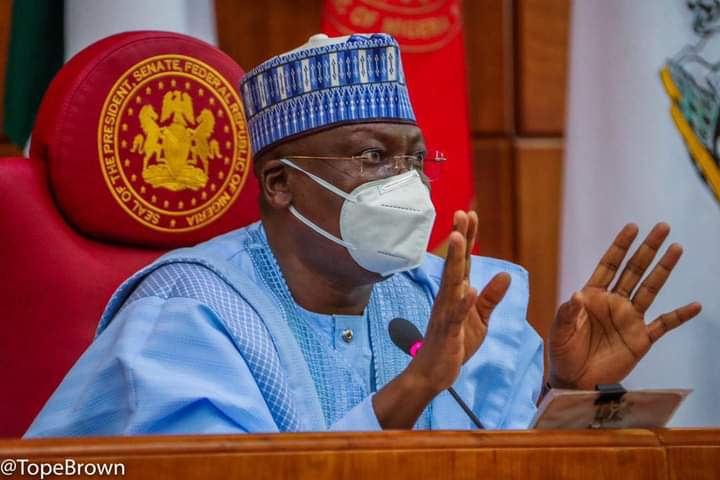Members of the National Assembly receive N17bn annually as running costs.
This covers the costs of their local/international travel, consultancy services, medical services, office stationery/computers, consumables, books, newspapers, magazines, maintenance of motor vehicles and office equipment, among others.
- Wike sacks commissioner for hosting MDCN without approval
- Nigeria needs 702 additional pediatric surgeons – FG
Senate President Ahmad Lawan disclosed this in Abuja Monday at a ‘Distinguished Parliamentarians’ Lecture Series’ facilitated by the National Institute for Legislative and Democratic Studies.
“The quarterly office allowance for legislators is what is erroneously conflated with a monthly income to create confusion and mislead the Nigerian people.
“The average office running cost for a senator is about N13 million; while that of a member of the House of Representatives is N8 million.”
The N13m office running cost for a senator amounts to N52m a year; while the N8m for a member of the House of Representatives amounts to N32m a year.
In all, the 109 senators and 360 house members receive annually N5.6 billion and N11.5bn respectively as office running cost, totaling N17bn yearly.
Lawan, however, said the office running cost of the federal lawmakers was the lowest of any presidential democracy in the world.
He also said: “The total salary of a member of the Senate is about N1.5 million and that of the House of Representatives is about N1.3 million.
He described the current National Assembly as the most successful in law making since the return to civil rule in 1999.
“We have broken many ‘jinxes’ and done many ‘firsts,’ overcoming traditional obstacles through consensus building and clever political brinkmanship,” Lawan said.
He said as of November 2021, about 2,500 bills had been introduced in the National Assembly – 769 in the Senate and 1,634 in the House of Representatives.
“However, as I have repeatedly maintained, for us in the 9th Assembly it is not so much the number of bills as it is quality.
“We have focused our energy working on legislations that have a realistic chance of being assented to as well as those that have the potential to impact most on the lives of Nigerians,” Lawan said.
He said President Muhammadu Buhari led-APC had been the most proficient in granting assent to bills.
He said available data on gazetted Acts showed that between 2015 and 2021, Buhari assented to more than 84 bills, the highest since 1999.

 Join Daily Trust WhatsApp Community For Quick Access To News and Happenings Around You.
Join Daily Trust WhatsApp Community For Quick Access To News and Happenings Around You.


